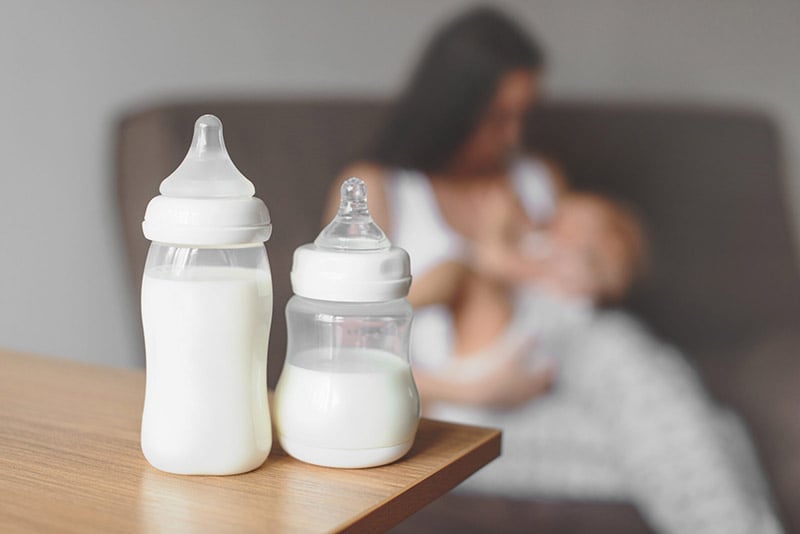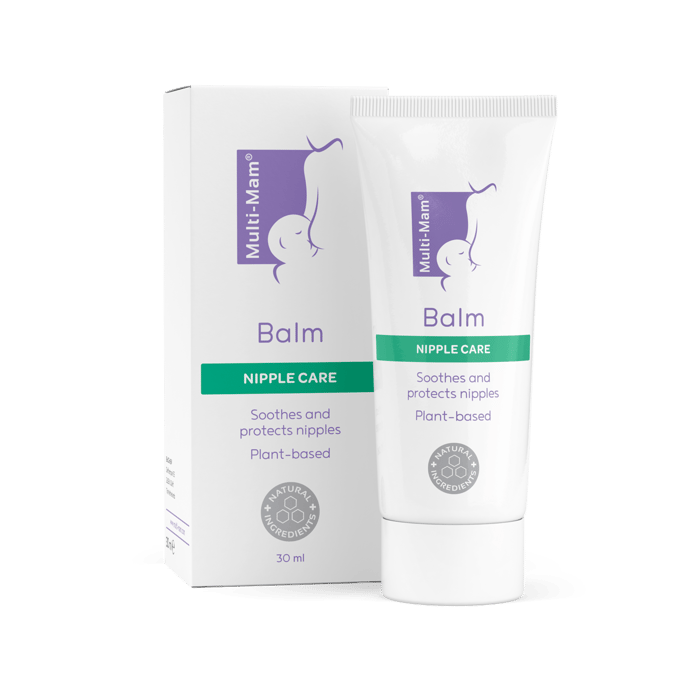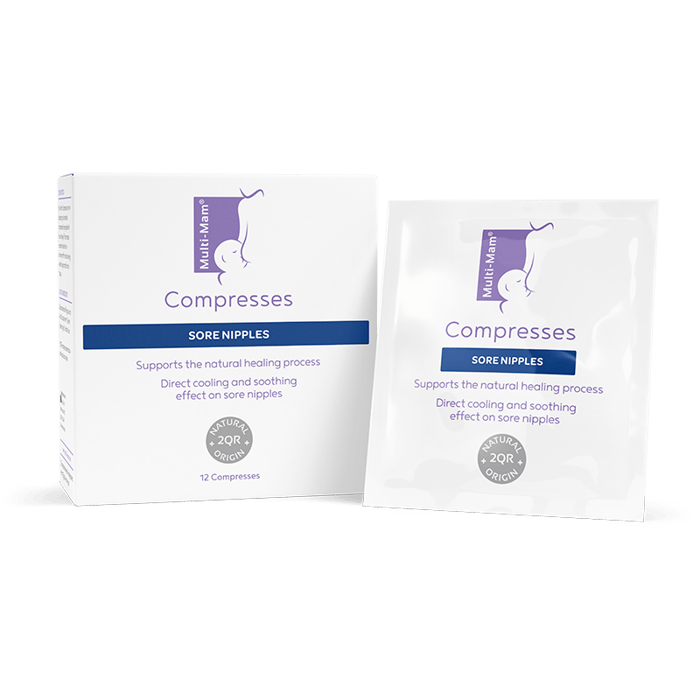Lactation
Lactation is a natural process that typically occurs in those who are pregnant and have given birth. This process works to create breastmilk. A lactating mom will continue to produce lactation milk so long as their baby is feeding, they are using a breast pump, or they are expressing their breastmilk by hand.
What is lactation?
The process of producing and then releasing breastmilk is lactation. It typically begins during pregnancy, though milk production itself will not ramp up and begin until you have given birth.
How does lactation work?
To produce breastmilk, several key parts need to work together.
Alveoli
The alveoli are the sacs that produce and then store the milk in the breasts. They come in clusters, and each cluster is referred to as a lobule, which then connects to a lobe. You have several lobes in each breast and can have up to 20.
Milk ducts
Connecting to each lobe is a milk duct. This duct then carries milk from the lobes to the nipples, allowing your infant to feed.
Areola
The areola, or the dark skin around your nipple, plays an important role in breastfeeding. When stimulated, for example, when your baby goes to feed, it sends a signal to your body that will then work to release the milk.
Nipples
Each nipple has around 20 pores that release milk. Stimulating the areola and nipples is required to release the breastmilk.

What is the process of lactation?
There are three stages of lactation in humans. You can use this lactation guide to help you understand the process your body is going through.
First stage of lactation
Lactation begins around the 16th week of pregnancy. Oestrogen and progesterone increase during this time, and as a result, the milk ducts in your mammary glands are stimulated and begin to grow. This increase is why pregnant women have larger breasts. Your Montgomery glands will start to secrete oil to lubricate your nipples as well during this point, and you may notice your nipples darken or your areolas get larger. While this is occurring, your body will begin to make colostrum, which is the densely nutritious breast milk designed for your baby’s first meal.
Second stage of lactation
This stage occurs a few days after you give birth and is when breast milk production amplifies. Oestrogen and progesterone levels will drop, and in their place, the prolactin hormone will increase. This is the hormone that works to produce milk.
It takes a few days for your body to level out and find the sweet spot of milk production that is enough to feed your baby. During this time, your breasts may feel overly full, tight, or even painful. This is a common symptom known as engorgement.
Third stage of lactation
Lactating breasts will continue to produce milk for as long as you continue to breastfeed. You will want to wean your baby off slowly to naturally decrease milk production and eventually stop lactation entirely. It can be painful while you are weaning your baby off of breastmilk. If you are in pain, there are safe pain killer options available.
What are the side effects of lactation?
There are several side effects of lactating and breastfeeding that you will want to be aware of.
Dry, cracked, or sore nipples
Though your body will secrete an oil to help lubricate your nipples, this oil is not always enough. Many breastfeeding mothers experience dry, cracked, and sore nipples while they are lactating.
Causes
There are many reasons why you might be experiencing dry, cracked, and sore nipples.
- Not having the right positioning of the baby and/or latch on techniques
- Nipples not being used to the new strain
- Your baby is teething and is being more rough when feeding
- Dry temperatures and dry air can result in dry, itchy nipples
- Contact dermatitis caused by mild allergic reactions to materials or ingredients
- Eczema
- Hormone changes and fluctuations
Treatment
In most cases, dry and even itchy nipples are nothing to worry about. To ease symptoms, you may want to try Muli-Mam Balsam Protect or Multi-Mam Compresses, which work to soothe irritated nipples while also providing a barrier that encourages healing and recovery.
Engorgement
When lactating breasts overproduce milk, your breasts may feel overly full, tight, and even painful to the touch. Engorgement is common, particularly in the first few days after birth when your body first starts lactating. It usually goes away on its own as your body adapts to how much milk is needed based on your baby’s appetite and your routine.
Causes
You often don’t need lactation help with engorgement as the overly full or painful feeling in your breasts tends to go away in a few days without any issue. Keeping a regular routine can help a lactating mother reduce engorgement faster.
Treatment
Though engorgement usually goes away on its own as your body adjusts to the right milk production levels, you can use a pump or hand express your breasts to relieve pressure as necessary. You might also find that using a cold compress can help alleviate pressure and work to slow milk production.
Blocked breast ducts
If milk is not properly drained from each duct, it can cause a blockage. You will feel a slight lump in your breast. Taken care of quickly blocked breast ducts are not an issue, but they can become a problem. If not drained, it could lead to mastitis, which may require antibiotics to treat. If left alone, you could then develop a breast abscess that will require a minor operation to remove.
Causes
If your baby isn’t drinking evenly from one breast to another, you may end up with a blocked breast duct.
Treatment
Tilt your baby’s chin in the direction of the lump and massage the lump to encourage breastmilk to flow from that specific duct.
If the block develops, then you will want to get in touch with your GP. Mastitis is often treated with antibiotics.
Should I change my diet if I’m lactating?
You don’t need to change your diet when you are lactating, but you should aim to eat a healthy diet.
There are many foods for lactation, lactation drinks, and lactation supplements that might increase the nutrition of your breastmilk if you are struggling with eating a healthy diet. You can ask your GP, midwife, healthcare professional, or even a lactation consultant for information on what the best lactation supplements are for you.
Everything you eat has the potential to be passed on through your breastmilk. Healthy eating and living can help to improve the nutrition of your breastmilk. You may also want to consider avoiding caffeine and other similar stimulants as this may be passed through to your baby.
Another supplement to consider is vitamin D if you are indoors a lot or it is winter. The body only absorbs the iodine that it needs, so this and vitamin D are helpful supplements to look into.
Lactation FAQ
What triggers lactation?
Lactation begins due to hormones released during pregnancy. It continues for as long as you need to breastfeed. There are some lactation products that can help reduce production or increase production depending on what your baby needs.
Can I make myself lactate?
Yes, and many people do make themselves lactate for a variety of reasons. One of the most common reasons is to relieve pressure caused by an overproduction of milk. You may also want to use a breast pump to store breastmilk for your infant later on.
What does during lactation mean?
The lactation period of women starts during pregnancy and ramps up a few days after delivery. During lactation means that your breasts are currently producing milk, and you are able to breastfeed your baby.
Can I make myself stop lactating?
Yes. Lactation stops when you stop breastfeeding. Though uncomfortable, refraining from stimulating the areola or nipples will naturally inform your body that it no longer needs to produce breastmilk and lactate. You will need to be careful and monitor for breast duct blocks as these can lead to complications.
What is the difference between breastfeeding and lactation?
Lactation is the process of producing breastmilk. Breastfeeding is the process of your infant feeding on this breastmilk.
What if I’m not producing enough breastmilk?
If you have a lactation issue or are experiencing a lack of lactation after delivery, you will want to get in touch with a healthcare professional or lactation consultant. You may be given lactation tips or be told to also include formula feeding to ensure that your infant receives the nutrients and calories that they need.



